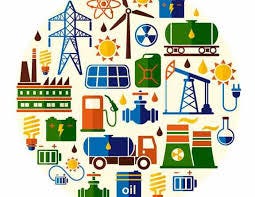- 6 July 2018
- Posted by: btcbros12
- Categories: Articles, Future Finance, Innovation, Technology

Interpretation: Implying that everything has a cost. In principle anything that is done through a process something is given up. Time is given up to go to work. Periods of time is given to Obtain financial or commodity gain. Resources are given up to Obtain Buildings, Transport, Equipment, devices etc. Even with some things that are free some effort is needed to obtain it. here’s an example: finding money on the floor and exerting energy to pick it up.
Evaluation: True in most cases, but unfortunately not applied to everything or so it seems!
For instance you could be minding your own business where ever you maybe and a stranger comes up to you and gives you something that you need, or in the blockchain an error occurs and you receive a large sum of free cryptocurrencies that have high value. This in essence is a benefit that nothing was done in order to obtain it! In both cases minimal effort was applied, but something was still gained!
Applying this to what we now know, financial stability is on a constant rise and being a pending issue, new ways are being developed to combat a system which is obsolete and run by a small select few of elites with financial, political or influential roles.

In today’s times and though out history we as people have subconsciously given up our rights, freedom, privileges property and commodities in order for a few to become and stay wealthy, in power or with some advantage over the less fortunate.

Disruptive ideologies, principles and technologies has been a slow but rapidly increasing tool to improve issues that have been over looked for generations due to information not being shared via consensus. If this wasn’t an issue shelter, financial stability, resources, Energy and technologies would be decades or even millenniums ahead of our time.
Currently technical developments are on an increase which needs resources, time and mass adoption, in order to be in stable use and at the consumers finger tips.
Living in comfort we generally take for granted the things around us that could help with improvements or be recycled, but we are not aware, concerned or informed. Things like jewellery, gold or some things which maybe seen as luxurious could be put to better use, in technology, medical, health and care fields. There could be better and more efficient ways of using materials or products instead of waste for pleasure.

Now you are wondering I understand about technology but how does this apply to blockchain and technical advancements on a whole.
Understanding that everything will eventually join or be part of some type of blockchain, because of security, financial and current participating projects and many more other areas yet to be explored.
With consensus and open ledgers, timestamped blockchains and freedom of information on a increase, access to information is but a click away, but the issues surrounding them along with political and influential agenda’s are and will be for some time resources, energy and cost to build them.
Regulations will and have always been seen as a way to help or hinder but eventually a work around is found to suit every ones need until it is unconscious in the background and we have a new interest.

So lets allow the spark of imagination, thought process or idea to take form in a sense where it is useful and applicable!
Now, lets apply the philosophy.
- In order to obtain a stable future, mass adoption is need.
- The majority and eventually everyone needs to be using up to date technology.
- This can only happen over time as it want happen over night.
- Individuals who may feel like their personal space or freedom is being invaded would need to understand or accept that it is an open consensus, so everything is out in the open and there is no hiding certain information or financial value.
- Resources that could be put to better use would be used instead of seen as luxurious or have limited use or availability
- Improved energy availability or free energy access. This would come at a cost that the set of people controlling it would not be, but instead everybody contributing to keep it available.
- Improved medical access instead of just those with financial influence being able to gain access to better treatment.
- Improved shelters with efficient up to date and technological improvements to save on costs
- Improved Eco-friendly transport/ transportation availability accessible to everyone and not just those with financial wealth
- Most if not all waste materials and products to be made renewable and reusable
- When it comes to sharing information: Trust, evidence and equality will be implemented which will be informative, have long term-ism, have a given accountable governance, be resilient and provide skills and careers.
- The effects to and how to make improvements to the ozone, climate, use of non-renewable natural resources.
Risk must and will be always taken to achieve improvements and gain better results. The biggest underlying and overlooked most if not more time is what it costs (in every sense) to get to that point!
As with every idea seen as useful or valuable, it is eventually introduced into the environment and socially accepted and seen as the norm. So once a solid agreement is found with accountable evidence old ideas and principles is changed and seen as obsolete but used as a principle to learn from to understand the process of change.
Conclusion: The interpretation that to obtain something is to give something up is almost always evident within slight limitations. Evaluation possibilities are endless but only with time and mass adoption, IF innovation, resources and time is available and put to ‘good use’.
This philosophy and principal regardless of the age, generation or era will always apply. Therefore the ideology is true but not widely accepted or practiced. In fact the very notions that goes along with these changes are often thought of as impractical by nature. Most of us are either blind to this, complacent or simply don’t have the time or resources to commit to these practices daily.

We really hope you enjoyed reading this article.
Please follow our blog for Part 2, coming soon!
